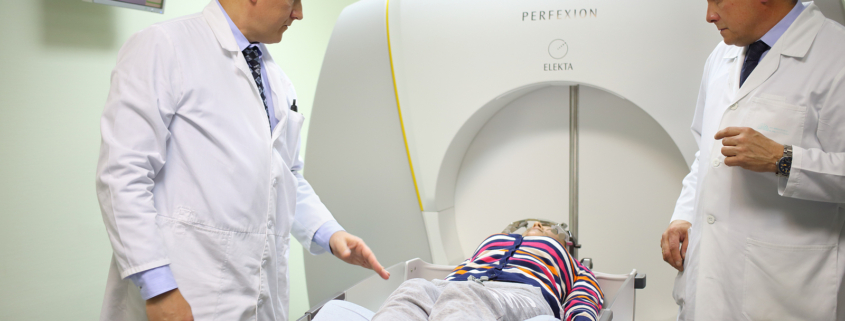What Your Recovery From Gamma Knife Surgery Involves
Major treatment for any kind of ailment, especially cancer, can be quite gruelling. But with a gamma knife, it can be much less so than some imagine.
If you have a tumour that requires precise attention, sometimes the solution your oncologist will choose is excision by invasive surgery. Like any surgical operation, this will require anaesthetic, usually a general one for such a procedure.
Recovery in such cases can be hard. It may take several days for the effects of the anaesthetic to wear off, while the bruising, stitching and healing of wounds can often leave patients immobile for a while, with restricted mobility for some time after that.
However, other forms of cancer treatment can also take their toll. Chemotherapy and radiotherapy can bring a range of side-effects, with regular treatment bringing consequences such as hair loss, fatigue, nausea, stomach trouble, loss of appetite, skin irritation, urinary issues and ‘brain fog’, when thinking clearly and concentrating is difficult.
A particular concern, especially with radiotherapy, is the possible impact on sexual function and fertility, the last of these having potentially life-changing consequences for those whose plans to start or extend a family may be frustrated.
Why Gamma Knife Treatment Is Different
Gamma knife cancer treatment is something only used in specific cases when warranted and is a potent treatment, blasting the affected areas with a powerful beam of radiation. However, the actual effect on the patient in the aftermath is relatively mild compared with many other treatments.
The most important thing about Gamma Knife surgery is that it is non-invasive, which means none of the tissue trauma or potential infection risk that comes with invasive surgery.
You will have to prepare for the operation in the right way, of course, such as washing your scalp the night before the procedure and making sure someone else is on hand to drive you to and from the operation.
During the procedure your head will be held in place, either with a metallic frame or a frameless plastic device, securing you in position so that the work can be done with precision. A local anaesthetic may be used, but not a general one. These are only given to children undergoing the procedure. You may be given sedatives to relax.
The fitting of the frame or frameless plastic is not an enjoyable experience and some may feel claustrophobic, but the good news is that what comes thereafter is not painful. Some people can even take a nap during the operation.
The Side-Effects Of Gamma Knife Surgery
Because it is so simple, involving no incision, no blood and no stitches, the process can be relatively quick, lasting no more than two hours and potentially as little as 30 minutes.
You may be kept in the hospital overnight for monitoring, but more often than not you will be able to go home. The sedatives will make you a little drowsy, but these will soon wear off.
Among the steps you might have to take will be wearing head bandages for a few days (which should be changed daily), using extra pillows to elevate your head more for a week, and washing your scalp 48 hours after the procedure. However, you should be careful not to pick at any scabs around the pin sites as that could cause infection.
Side effects could include nausea and vomiting, headaches, puncture wounds where you have had injections (such as local anaesthetic), as well as some numbness, bruising and slight pain for up to a week around sites where your head has been pinned in place (such as to the frame) for the procedure. Hair loss can happen if the tumour is close to the scalp.
However, these are all very temporary features that will soon wear off, whereas other treatments can produce ongoing side effects (such as the loss of hair from chemotherapy).
Getting Back To Normal
More importantly, having gone home within a day of the procedure, you will be able to go about your daily routines fairly normally, apart from the likelihood that you will be advised to avoid strenuous exercise.
Indeed, you may even be able to work as soon as the next day, or do things like flying in a plane within a few days.
Gamma Knife surgery is not for everyone. It is designed to tackle particular conditions and there may be medical reasons why you cannot have it, including pregnancy (radiation can cause birth defects) or having cardiovascular devices fitted, such as a pacemaker.
Nonetheless, it is a procedure that has made a huge difference in the lives of many people. Therefore, it is very good news that it is a far less arduous treatment to undergo than so many others.


